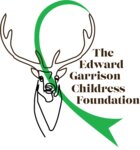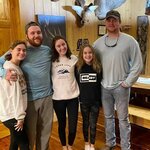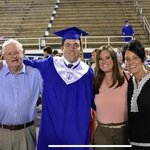A month after it happened, people from other departments still abruptly turned into the nearest room to avoid the awkwardness of passing her in the hallway.
In a hospital. Where she'd been …
This item is available in full to subscribers.
Please log in to continue |










A month after it happened, people from other departments still abruptly turned into the nearest room to avoid the awkwardness of passing her in the hallway.
In a hospital. Where she'd been working for 28 years.
"People look away from you when you talk about it," said Amy Childress, a longtime Fairhope resident who in January 2023 lost the younger of her two sons by suicide.
She doesn't expect her encounters encompassing those conversations to be "a happy occasion," but she does say she thinks suicide should not be such a stigmatized secret.
She has never shared her story publicly through a media outlet. Now, nearly two years later, Childress, with the help of her nonprofit fundraising experienced sister and a community she hopes will come out to the South Alabama Out of the Darkness Walk in Fairhope Oct. 13, is doing just that with the wish to prevent even one family from going through the same heartbreak.
"The more we talk about it," she said, "the more it comes out and we can see it."
'A NORMAL TEENAGER'
Garrison Childress was part of what his aunt describes as the all-American, typical Fairhope family. He played baseball and football, being named an honorable mention on the 2018 Coastal Alabama All-Region Baseball Team and to All-County in 2019.
Childresses are embedded into the fabric of Fairhope. Garrison's father, Emery, has lived here his whole life. From early childhood, the boy loved hunting and fishing. He graduated Fairhope in 2019 and was a senior at the University of Alabama, majoring in mathematics and education.
He "never found a Rocket League video game he couldn't win, a deer he wouldn't hunt or a Green Bay Packers game he couldn't cheer for," his "Uncle Johnny" penned in his obituary. He reveled in meeting Crimson Tide football players while Door Dashing night deliveries in Tuscaloosa, John wrote, and calculated fantasy football stats like "an arithmetic problem to the future math teacher" he aimed to become. Alongside coaching the sports he loved playing, of course.
"Looking back, it's easy to see," Amy said, "but he was just a normal teenager."
He was close to his older brother. He had "tons of friends." He was nice, bubbly.
But anxiety and depression, which he started contending with in high school, are no easy illnesses to suffer alone. To the world, he was quiet and reserved, well-mannered. Utterly calm and focused on the pitcher mound.
The Edward Garrison Childress Foundation cites a study from the University of Michigan that found 44% of college students report symptoms of depression, 37% report anxiety disorders and 15% reporting having seriously considered suicide in the past year. Suicide is the third leading cause of death in high school and college-aged people, the 11th leading cause of death in the U.S., according to the American Foundation for Suicide Prevention.
There is never one reason someone takes their life. In 2022, 49,476 Americans died by suicide, men taking their lives 3.85 times more than women. White men accounted for 68.46% of suicide deaths in 2022, AFSP reports.
Rather, a combination of factors leads people to a breaking point. Undiagnosed, untreated mental health conditions. Family health history. A breakup. The isolation of a global pandemic.
Garrison's brother voiced concern to his parents when he stopped going to class, but he seemed to be feeling better after three months of weekly therapy sessions, moving home and working for his dad during COVID-19.
"We thought it was more situational, and he seemed better, so he went back to school," Amy said. "But he led us to believe that. …When you don't know everything your kid is doing, it's hard. At that age, they're trying to break away from you, and you beat yourself up over that."
He'd "make weird comments." Stopped getting haircuts. All signs in hindsight, but no overwhelming red flag in the moment without a support network to help point them out. What's left is guilt and grief in the void of answers.
It's not acceptable to talk about. Many people believe depression is something you can choose your way out of. You're supposed to just be OK. Snap out of it, or it's your fault.
"But he gave up because no one would believe him," his mother said.
The stigma of not just suicide but the illness of mental health that often is a contributing factor predicating the loss of life often leads teenagers and especially young men to hide their feelings.
"(Looking back,) he felt a sense of relief that we mistook for coming out of his depression," she said, "but he had already decided to do it."
'HIS LIFE HAS TO STAND FOR SOMETHING'
If there is a stigma in reaching out about mental health symptoms, Amy certainly still feels, she said, the resistance to talking about how many lives suicide touches.
Yet, "it never occurred to me to not tell the truth about it." She is 12 years sober, and the idea of surrounding yourself with a support network did give her a good foundation in the aftermath of Garrison's death.
That support network went to bat for them immediately. Garrison's aunt, Molly Stone, fundraisers for nonprofits, especially a group that provides bereavement resources for families of children with cancer. She helps those families build a legacy. Suddenly, it was her own family in need of support.
Garrison died on a Tuesday, Amy said, and Molly was at the school Thursday to set up a scholarship in his name. Nearly two years later, they hold two events, a clay shoot in the fall and a golf tournament in May, to honor the 21-year-old and raise money for an endowed scholarship through the Edward Garrison Childress Foundation.
The Foundation has three principles: raising awareness, preventing suicide and remembering Garrison. The events, and telling their story, raise awareness. They're this year's largest sponsor of the annual South Alabama Out of the Darkness Walk.
Money raised goes to partner with AltaPointe Health and Baldwin County Public Schools to provide counseling for what Molly calls "gap kids," whose families don't make enough to afford insurance to cover mental health services but too much to qualify for grants that provide access to the partnership's social workers.
They're also pushing for a federal awareness law.
"There were signs. He failed three semesters of college, but because he had such a high GPA it took too long for an academic warning," Molly said. "This would allow the university a loophole to say, 'We can't say what your child is doing, but there's a red flag and you should check on your child.'"
And through this all, they want the Foundation to be their connection to their continued faith.
"We don't believe he willed it on us, but we know it was within his realm to heal. God has been present through all of this. It draws us closer to him," Molly said.
"The Foundation gives us a channel to get those feelings out. We'll never know why he did it. We'll always be left with that. But this is a channel that honors him, and maybe it can save a life," Amy said. "As a mom, I can't let his life be for nothing. His life has to stand for something. He was there for almost 22 years, and then he was just gone, and, you know, everyone else has moved on."
They would "do anything to have him back" over the Foundation, Molly said, but we must all work with the circumstances we are given. We choose how to react to both joys and unfathomable hardships.
There is a "gaping hole" where there were once five cousins between Amy's two sons and Molly's three daughters — a freshman in college, sophomore and middle-schooler at the time — and a host of cousins on the other side of his family, as well as grandparents, cousins, aunts and uncles, one seat is empty.
"If we have to do this, this is what we'll do to remember him," Molly said.
In the same universe that can easily fill that hole with darkness, EGCF's first two scholarship recipients, a graduating male and female from Fairhope, were awarded last school year. The 2024 scholarships will be granted in May. And in a couple weeks, a community with gather to walk out of that darkness and into a world that, in the absence of a young man who loved to hunt and fish and play sports, with every step taken, a legacy shines.